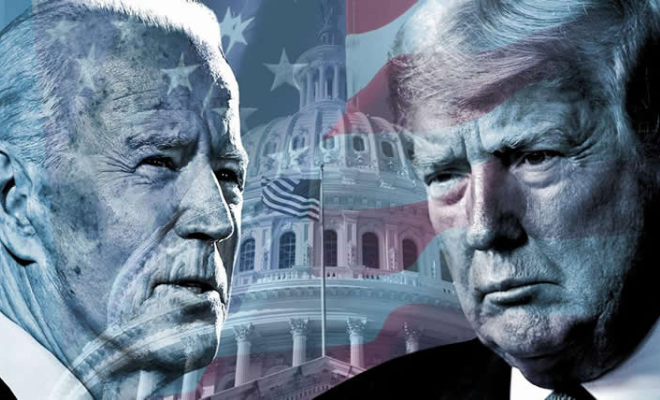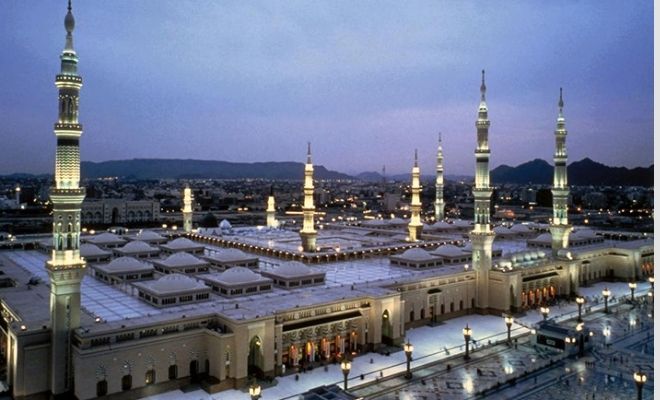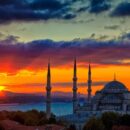Hijrah: The Birth of the Islamic State

In the month of Muharram, our beloved Prophet and Messenger, Muhammad (saw), was commanded by Allah (swt) to emigrate from Makkah to Madinah.
This is known as the Hijrah.
The Sahaba (ra) understood the Hijrah to be of enormous importance for the Ummah. In fact, the second Khalifah, Umar ibn al-Khattab (ra) was reported saying: “The Hijrah has separated truth from falsehood, therefore, let it become the Epoch of the Era” (Ibn Hajar al-Asqalani, in Fath al-Bari).
For the Sahaba (ra), the Hijrah marked the beginning of when Truth (Haq) would clearly stand out in a world that was filled with Falsehood (Baatil).
How?
Since the Hijrah, the Muslims implemented the systems of Islam. The citizens of the Islamic State experienced Allah’s (swt) mercy in every aspect of their lives.
Moreover, Islam also rose to the world stage and began employing political, economic, and military means to oppose the powers that spread Baatil (falsehood) and fasaad (corruption).
Hijrah led to Islam – i.e., Haq – starting its fight against Baatil and reversing its oppression on humanity.
That is why the Sahaba (ra) made the Year of Hijrah the start of the Islamic Calendar. To the Sahaba (ra), our Islamic history was signified with the Hijrah.
The Groundwork of Hijrah
In the 10th Year of Revelation, Allah (swt) ordered Rasul’Allah (saw) to seek Nussrah – or support to establish political authority– from the Arab tribes.
Ibn Abbas (ra) narrates Ali (ra) saying:
“When Allah (swt) ordered the Prophet to approach the Arab tribes, I and Abu Bakr accompanied the Prophet (saw) to Mina until the court of the Arab tribes.” (Ibn Hajar’s Fath ul Bari).
We can learn a few key lessons in this period.
1. Rasul’Allah (saw) did not ‘wait’ for victory.
He (saw) was aware of the Muslims’ future emigration to a new land.
He (saw) said: “Your place of emigration has been shown to me. I have seen salty land, planted with date-palms and situated between two mountains which are the two Harras.” (Bukhari)
However, he (saw) did not use the knowledge of the future as an excuse to be a passive bystander to events.
Rather, the Prophet (saw) sought the victory. Thus, he (saw) sought to establish an audience with as many leaders as he possibly could.
‘Zaad al-Ma’ad reported from al-Waqidi the following:
“The tribes known to us whom the Prophet (saw) approached and called them are Banu ‘Aamer ibn Sa’sa’, Muharib ibn Hafsah, Fazarah, Ghassan, Murrah, Haneefah, Sulaym, ‘Abs, Banu Nadhar, Banu Bika’, Kindah, Kalb, Harith ibn Ka’ab, ‘Udrah and the Hadhramis. None of them responded positively.”
2. Never get discouraged.
In the hadith, we find that the greatest man to have walked on the Earth, Muhammad (saw) could not convince even one of the tribes he spoke to to give him political and military support. Rather, some tribes (like Banu Thaqif, who lived in Taif) even assaulted him!
But this did not deter Rasul’Allah (saw) from seeking Nussrah.
The victory was coming, but Rasul’Allah (saw) understood he had to do his part to attain it because it was an obligation from Allah (swt). This was no different to when Nuh (as) had to build a ship on dry land, or when Musa (as) had to march his people to the sea. Allah (swt) decides when and how to deliver the victory, but the Muslim must work towards attaining it, regardless of the consequences.
3. Rasul’Allah (saw) did not compromise.
Banu Aamir bin Sa’sa were willing to give Nussrah, but they wanted to inherit the leadership after Rasul’Allah (saw).
The Prophet (saw) responded by saying, “The matter (authority) belongs to Allah, and He gives it to whoever He wishes.” The tribe rejected him (saw) and said, “We do not need what you call for.”
Even when Nussrah was on the line, Rasul’Allah (saw) did not compromise. He (saw) was unconcerned about the results, but rather, wanted to follow Allah’s (swt) commands without wavering as he placed his full trust in Allah (swt).
4. It is a matter of obeying Allah (swt).
Allah (swt) delivered the Nussrah through the Aws and Khazraj, two tribes from what is now known as Madinah. Their leaders pledged loyalty to Rasul’Allah (saw) and vowed to obey him.
However, even with the Ansar (ra) supporting Islam, Rasul’Allah (saw) did not emigrate from Makkah to Madina until Allah (swt) ordered him to do so.
The entire process of seeking Nussrah and performing Hijrah was ordered by Allah (swt). The whole experience was something Rasul’Allah (saw) and the Sahaba (ra) had to do because it was a fard legislation by the creator of the heavens and universe
Carrying Islam to the World
Upon arriving in Madina, its people embraced Rasul’Allah (saw) as their ruler. Over the next 10 years, Islam would go from being a deen held by a group of individuals to a force shaping the world.
First, Rasul’Allah (saw) began re-organizing society in Madinah.
For example, he (saw) set up the ‘Charter of Madinah’ to define the rights and responsibilities of each tribe, including the powerful Jewish ones residing in the city.
Rasul’Allah (saw) also began sending the Sahaba (ra) to raid the Quraysh’s caravans. This action started to weaken Makkah’s economy and, eventually, led to the Battle of Badr.
In the Battle of Badr, Rasul’Allah (saw) mobilized an army to fight and eliminate the worst enemies of Islam at the time, i.e., Abu Jahl, Utbah ibn Rabi’ah, and Ummayah ibn Khalaf.
The Prophet (saw) also punished those who attacked the honour of Muslim women. For example, when the people of Banu Qaynuqa assaulted a Muslim woman and murdered a Muslim man, Rasul’Allah (saw) surrounded them with an army. He (saw) eventually exiled Banu Qaynuqa from Madinah.
Rasul’Allah (saw) also negotiated the Treaty of Hudaybiyyah with Quraysh to advance the interests of the Islamic State of Madinah.
He (saw) forced Quraysh to recognize Madinah. This had allowed Rasul’Allah (saw) to strengthen the Islamic State’s position by removing threats like Khaybar and by winning over more of the Arab tribes to align with Madinah instead of Quraysh.
Rasul’Allah (saw) also put Islam on the world map by establishing formal contact with the leaders of the Eastern Roman/Byzantine Empire, Persian Empire, Egypt, and Yemen.
In fact, he (saw) had even dispatched the Islamic Army to confront the Romans in Mu’tah, a feat that the Arabs of his time could not have even imagined before Islam!
When an ally of Quraysh (Banu Bakr) broke the Treaty of Hudaybiyyah by attacking Banu Khuza’ah (which was allied to Madinah), Rasul’Allah (saw) led an army to Makkah.
Makkah surrendered and the Sahaba (ra), who had left the city as former slaves or persecuted activists now returned as its new senior leaders. Not only that, but the Islamic State was now expanding in Hejaz and soon, throughout the Arabian Peninsula.
We can see from these examples that the Hijrah was the start of Islam as an organized society with a state.
The Islamic State in Madinah represented the Ummah on the world stage. After Rasul’Allah (saw) passed away, the Sahaba (ra) succeeded him as his khulafah and continued the work.
This was the Khilafah Rashidah.
The majority of the Muslim lands we see today trace their Islam to the efforts of Rasul’Allah (saw), the Khilafah Rashidah, and the Khulafah that followed ever since.
Through the Khilafah system, Allah (swt) blessed the Ummah with a position of respect in the world. In fact, even in its dying years, the Uthmani Khilafah still held on to some of this might and respect.
For example, a play insulting Rasul’Allah (saw) was becoming popular in France. The then Khalifah, Sultan Abdul Hamid II, used diplomatic means to pressure the French government to stop the play. Despite being the stronger military and economic power, France stopped the play from being publicly displayed.
the fall of the Khilafah was the fall of the Ummah
When we lost the Khilafah, our Ummah lost its voice on the world stage. Since then, we fell into a world where Baatil can once again spread freely. As a result, those who obey Allah (swt) – alongside the weak and the poor – suffer globally at the hands of today’s Abu Jahls, Firauns, and Nimruds.
Be it hijab bans in Quebec and France, occupation in Palestine, drone strikes in Syria, ethnic cleansing in East Turkestan, Kashmir and India, the Colonialist powers pushed our Ummah into a corner.
Yet, we, as an Ummah, have not pushed back – why?
The Path to Victory is the Only Path Forward
The Seerah of Rasul’Allah (saw) shows us that Hijrah was not about fleeing persecution in Makkah, but rather, it was the next step in the growth of the Islamic Dawah.
In Makkah, the Islamic Dawah was limited to thoughts and words. It was not hard for the likes of Abu Jahl to drown it with his noise and oppression.
But after Hijrah, Islam became a real-world force. The people could now experience the mercy of Allah (swt) in every aspect of their lives, be it trade, security, personal wellbeing, and even worship.
And whenever the enemies of Haqq attack Islam or the Muslims, the Ummah – via the Khilafah – would ultimately respond by fighting and driving Baatil out of the land. For example, even when the Mongols ran over much of Persia and Iraq, the Ummah – by the permission of Allah (swt) – eventually pushed them back. In addition, Allah (swt) enabled the Ummah to retake Palestine from the Crusaders, despite the latter occupying the land for 200 years.
In fact, for the Sahaba (ra), Hijrah was not about ‘fleeing persecution,’ but ‘marching forward’ to become the leaders of humanity. Not only did the Sahaba guide the Arabs, but they started guiding other nations, like the Persians and Egyptians, in their lifetimes!
But when the Khilafah fell, the world lost that guiding light.
Hence, it is an obligation on the Ummah to restore this light – to re-establish the Khilafah Rashidah upon the method shown to us by Rasul’Allah (saw).
We have no other path forward. As the Hijrah shows us, Allah (swt) wants the Ummah to take the position of leadership in the world and guide humanity to the Haqq once again. That is our sole mission as Muslims.
If we do not rise to this mission, then we are wasting our time, our wealth, our intellect, our power and, ultimately, our lives.
Allah (swt) did not let Rasul’Allah (saw) or his Anbiyah (as) sit and wait for His victory. So, what are we waiting for?









